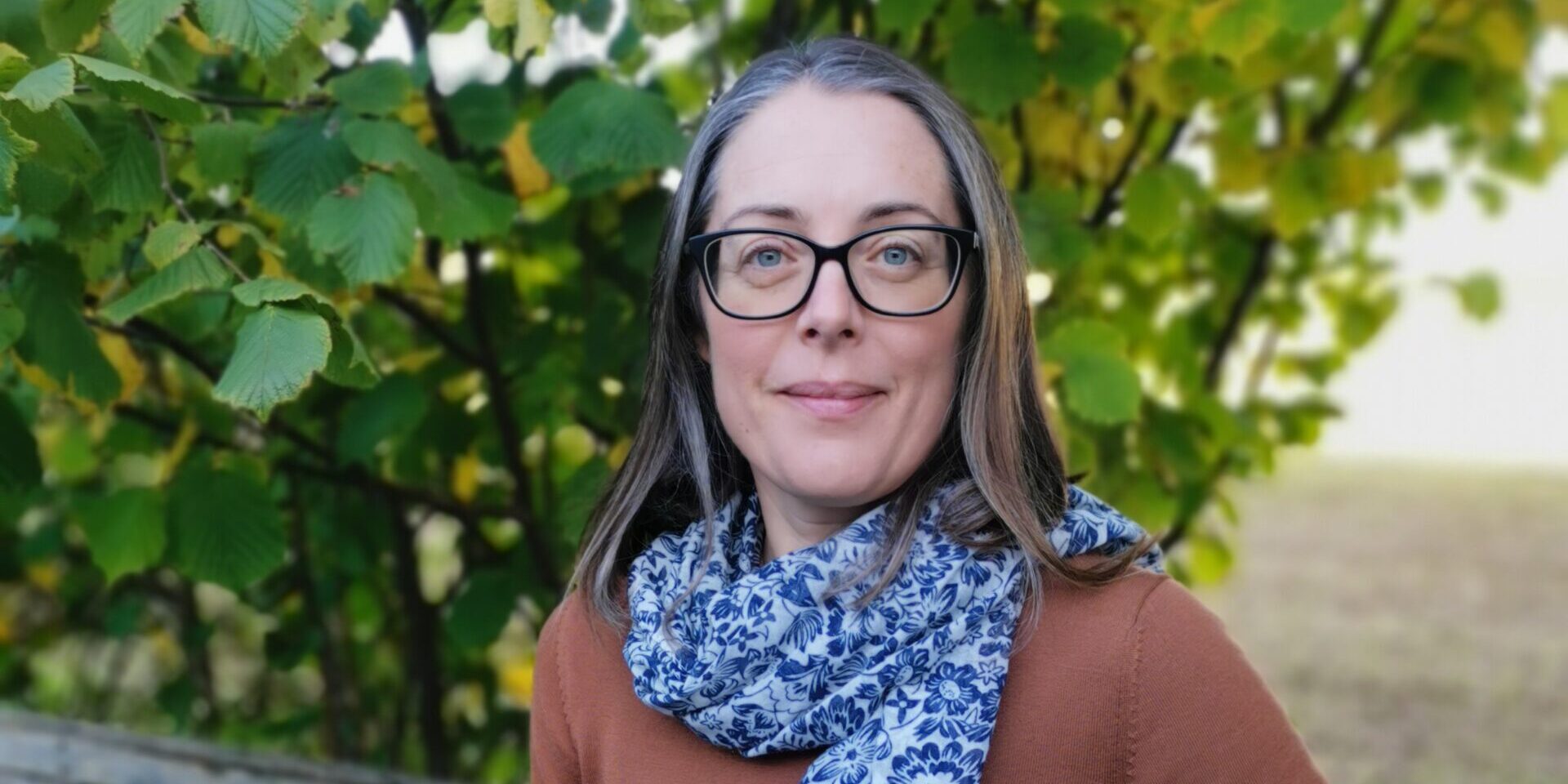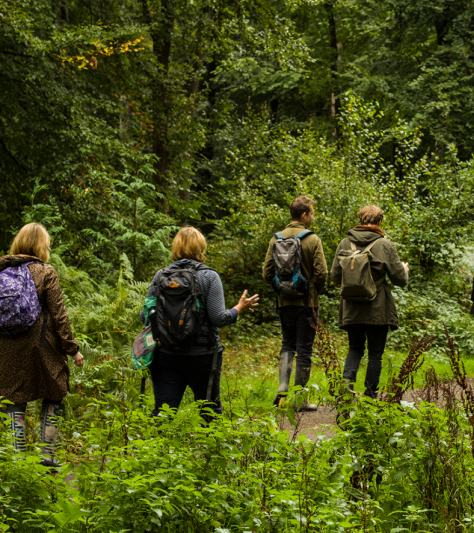Jemma Cuthbert: “I told her she could be a great forester in the future!”
Long-time RFS Education Officer and now Schools & Community Outreach Officer, Jemma Cuthbert offered her experience of encouraging children to learn for International Women's Day.

1. What sparked your interest in forestry as a career path?
I was originally trained in ecology, but decided early on that what I really wanted was communicate about ecology, wildlife and conservation, so I was drawn to environmental education rather than research or consultancy. It seemed a natural progression into classroom teaching, so I kind-of accidentally spent many years as a primary teacher.
Eventually I had to get back to my roots and get outside! I had also been interested in sustainable resource use for a long time, so when a family member started working in forestry, I began to really think about how the two go together. I’ve now been a freelance Education Officer for the RFS Teaching Trees programme for nearly 6 years and I think it’s a wonderful initiative! At it’s heart is a desire to communicate about both woodland ecology and how we can use timber as a resource and manage woodlands; this is quite different to many programmes, which don’t necessarily link our everyday choices to what happens to the other species that live alongside us. In one session I can:
- start with a trail where we find objects made of different materials;
- discuss where plastic and metal come from and the environmental effects of extracting, using, recycling and disposing of those compared to timber;
- explore the species that live in the woodland;
- learn about how we can, with enough care and knowledge, manage woodlands to get good timber and wildlife habitat;
- then put it all together at the end by giving them role-play choices about which trees to fell and which to keep.
If it’s pitched right, that session can be run with 8 year olds! (The teachers will learn a thing or two as well!) It would be fabulous if we could gain the funding to expand the programme to more children.
2. How have things changed for the better (or worse) regarding gender equality in forestry since you started?
I don’t really feel able to answer that, as the arena I work in is so different from the forestry sector in general. I think actually more women work in forest education than men, certainly at the school-aged level, probably because many are ex-teachers!
3. Which women have inspired or influenced you the most, and why?
Carolyn Church, who owns and runs Hazel Woodland Products at Rawhaw wood in Northamptonshire along with her partner Hugh Ross. I met her a few years ago when I was writing an article for Small Woods magazine about their coppice, and ended up becoming good friends and helping out with processing the hazel. She has taught me so much about coppicing and how to do it properly (plus how in so many places it is not actually done very well!). Carolyn is a champion of women in woodland work, and of people living on and looking after the land they earn their living from.

4. Do you have a favourite memory or standout moment from your time working in forestry that you would like to share?
My current favourite memory is from last week: I was planting 200 trees with a Year 3 class at a school in Kent as part of my role as School and Community Outreach Officer with the RFS. I’d set off most of the groups planting different sections of a mixed native broadleaved hedge. I was helping one group with their planting, when from across the field one of the girls gave a delighted shout of
“I’VE PLANTED A TREE!!!!”
She sounded so excited; it was a moment of pure joy!
Another good memory is of a little Year 2 girl who was also tree planting. She doggedly and happily kept up with her older, bigger, eco-team members, managing to persuade the adults to let her plant all day instead of the hour she’d been meant to do. She even came back with her mum to help me finish the planting after school. I talked to her about the many different careers you can have in forestry and I told her she could be a great forester in the future!
5. What hurdles have you faced as a woman in the forestry field, and how did you navigate them?
I’m very fortunate that I don’t feel I’ve faced any hurdles because of my gender, due to the part of the sector I’m working in.
6. What kinds of support or changes would make the forestry profession more welcoming and empowering for women?
The RFS is doing a great job of raising the profile of women in forestry. The forest education sector’s part in this is to continue this push to show girls that forestry is an exciting and varied career that is open to them.
7. Have you come across any stereotypes or misunderstandings about women in forestry, and how do you challenge those perceptions?
Again, not in the part of the sector I work in, but I’m aware that this isn’t the case generally.

8. Are there any projects or achievements in your forestry career that you are especially proud of?
I recently branched out into running Introduction to Forestry training courses for adults, which was a bit outside my comfort zone! But I got some really positive feedback, which I was proud of. One of my career aims is to be a bridge between those in the forestry sector and those outside of it. I think having worked in education for so long, and also being involved in conservation with the charity and voluntary sector in my part time, I have a good idea about perceptions and misconceptions about forestry, which puts me in a good position to address those and deepen people’s understanding.
9. What will be the biggest challenge for the generation of women behind you?
I’m not sure it’s the biggest, but one challenge is to make sure we don’t fall into the trap of trying to get on in careers by acting just the same as some of the men around us. If different is better, then do it differently! Whilst I am frustrated by some of negative perceptions of forestry outside the sector, on the other hand I’m conscious that not all forestry is equal in terms of its environmental impact. I don’t want to defend practises I don’t agree with as an ecologist. Having a diverse range of voices in the sector is in an opportunity to think more widely and creatively, to try not to make mistakes that were made in the past.
10. What words of wisdom or encouragement would you offer to other women who are considering a career in forestry?
Go for it, and never stop learning!
Many thanks to Jemma for sharing story about forestry education, as well as those who taught and inspired her along the way.
Read more:

